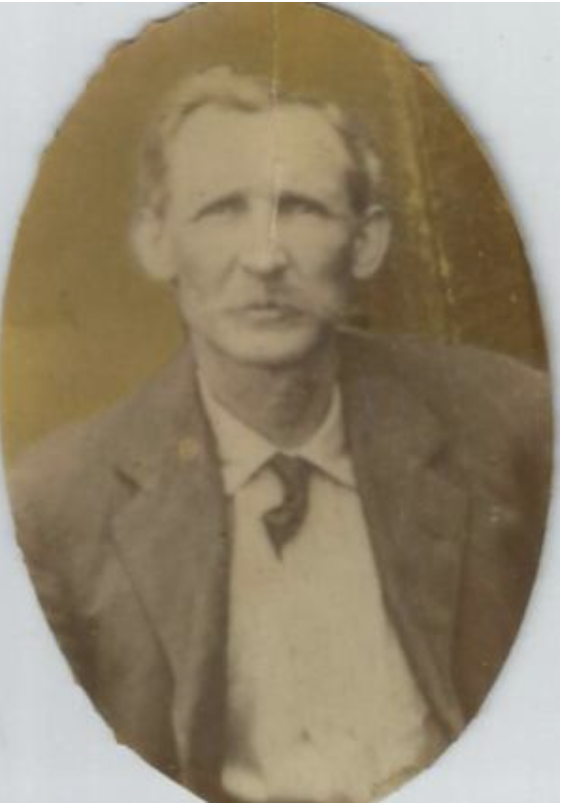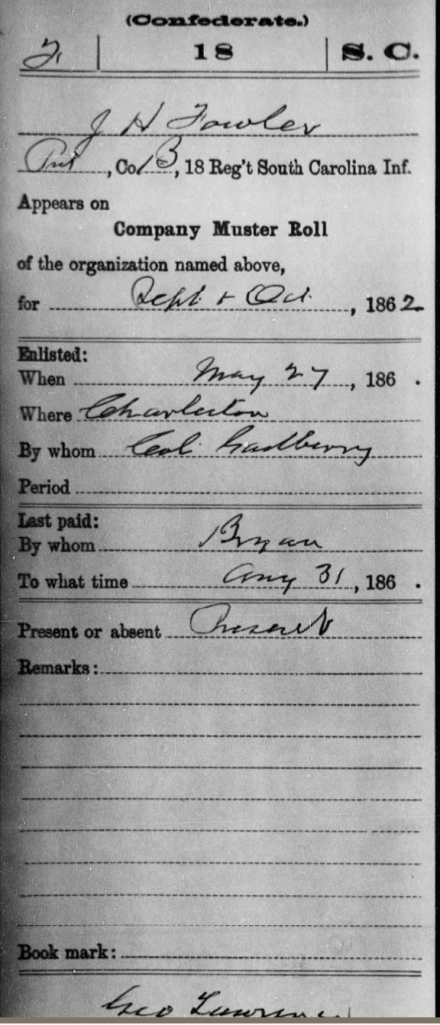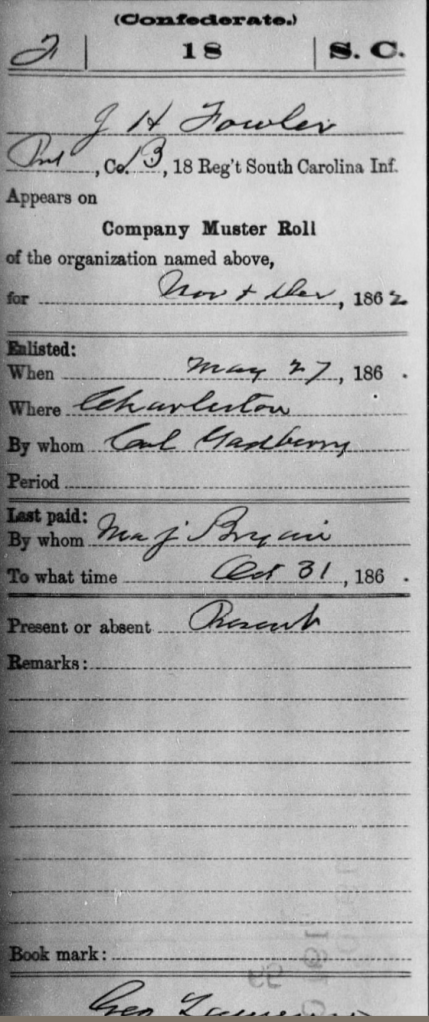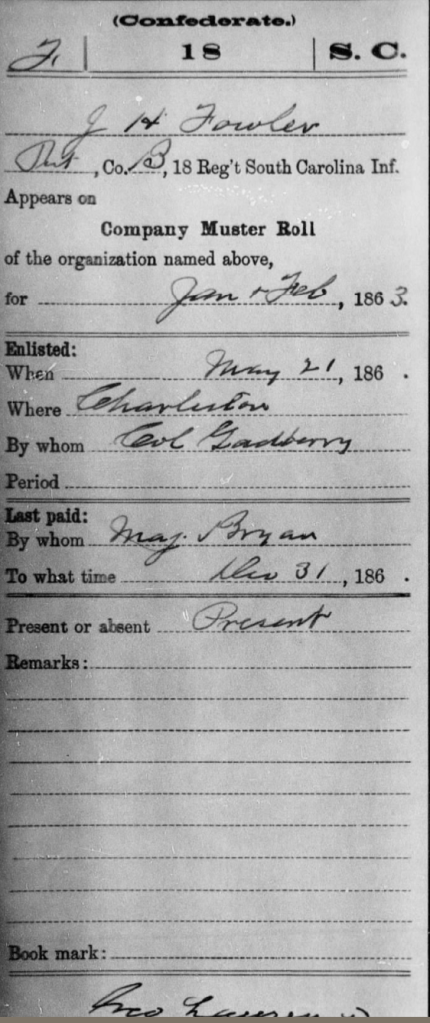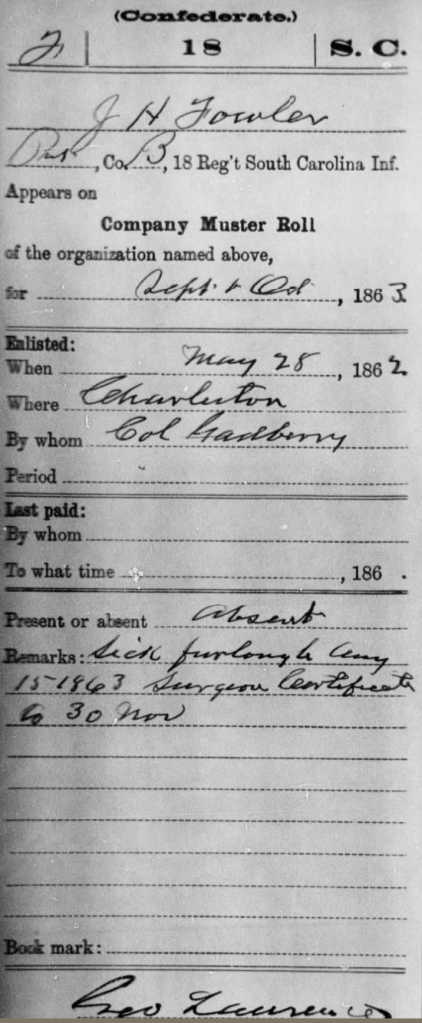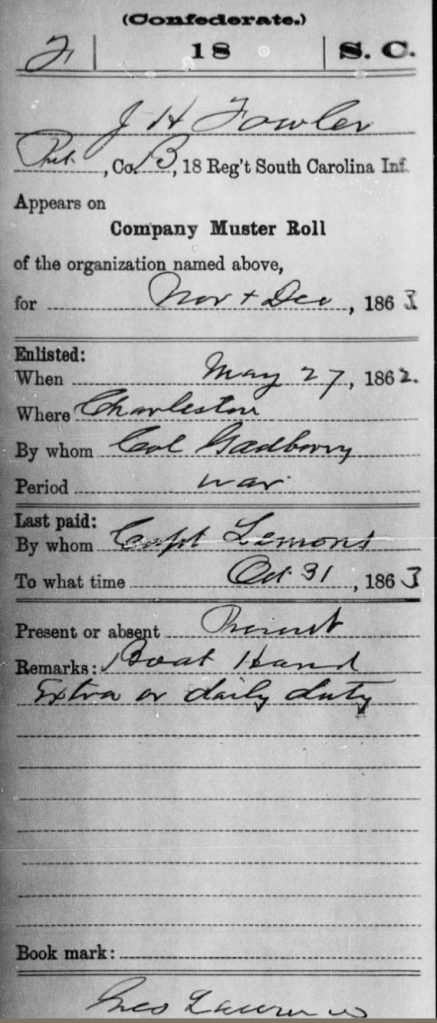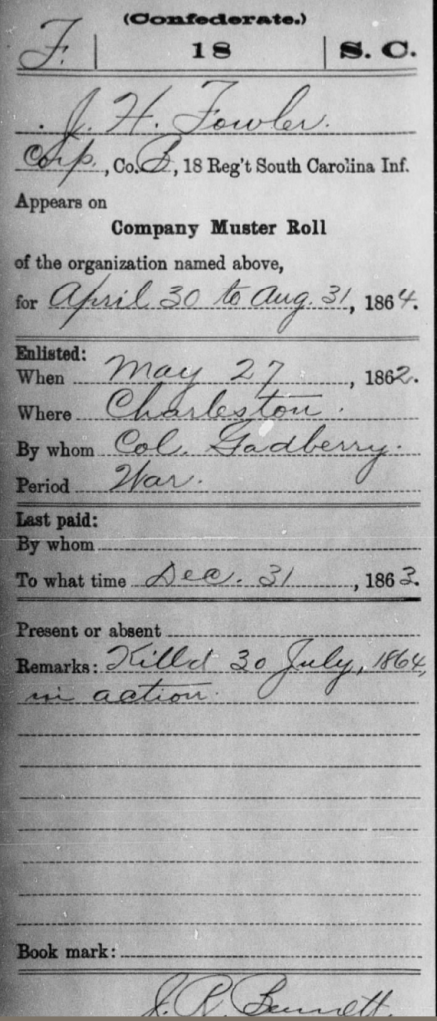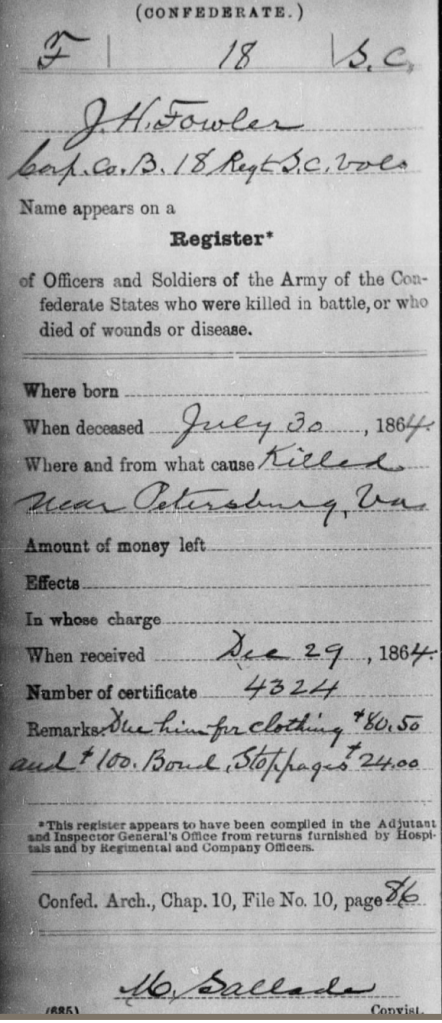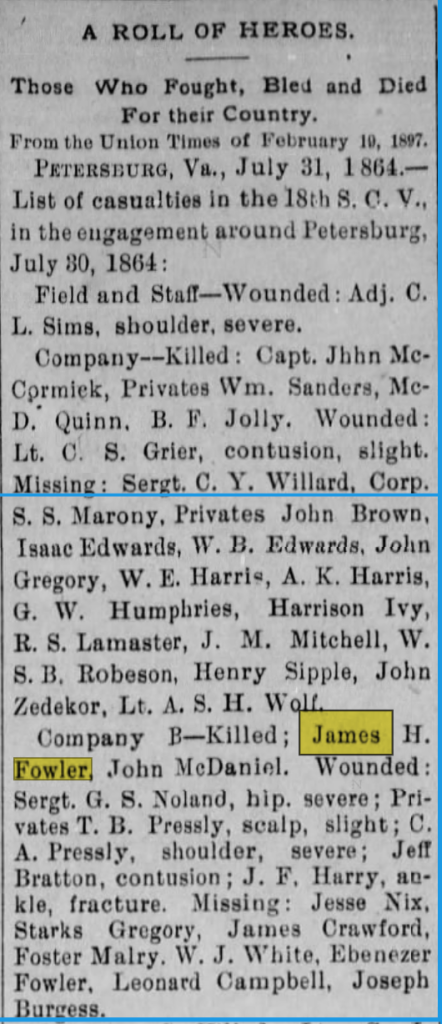Four sons of Womack Fowler left hearth and home behind as they marched off to fight in the War Between the States. Their wives, perhaps, shed a tear as their young children waved good-bye, and all listened as the footsteps of their brave soldiers faded in the distance.
One by one, war claimed the lives of the sons of Womack.
One by one, the sons of Womack died for a cause dear to their hearts while dear hearts back home were broken and would forever bear the scars of a husband … a father … lost in battle.
James Hervey Fowler was born on October 19, 1832. He married Mary Cansada James (b. 1833) about 1858. She was the daughter of David James (b. 1804) and a granddaughter of Revolutionary War soldier Shaderick James (1744–1852).
Mary Casanda James was no stranger to the reality of war. Surely she had heard the stories of her grandfather’s mighty battles in the Revolutionary War.
She must have heard the whispers that a war would soon come where brother would fight brother on the battlefield, and bloodshed would turn the red soil a darker shade of red.
James Hervey Fowler and Mary Cansada James had two sons and one daughter:
- John Fowler (1859–before 1870)
- Harrison David Fowler (1860–1927)
- Sarah Carter Fowler (1862–1940)
James Hervey Fowler enlisted in the 18th Regiment South Carolina Infantry, Company B on May 27, 1862 in Charleston — previously a charming, genial southern city, but a year into the war, filled with uncertainty, chaos, and confusion.
Company B was comprised of Union District Volunteers under the command of Colonel James M. Gadberry. Military records for James Hervey Fowler are scarce. I discovered only nine slips of paper under the name of J.H. Fowler documenting his movements during the war.
We know little of the trials and tribulations that he endured when he entered into his regiment as a Private until his promotion to Corporal and his eventual death in battle.
Company Muster Rolls for September/October 1862, November/December 1862, and January/February 1863 : J.H. Fowler was “present” in his company.
The September/October 1863 Company Muster Roll informs that J.H. Fowler was sick and on furlough until August 15, 1863. A surgeon’s certificate had extended his furlough to November 30, 1863. As the regiment was stationed at the Charleston Harbor during that time, it is hopeful that he was well enough to travel the almost two hundred miles home to visit his family.
In November/December, J.H. Fowler was “present” in his company and on duty as a boat hand. His brother Felix Parham Fowler was also assigned the same job and it must have been of some comfort for the two brothers to have had this time together.
The March/April 1864 Company Muster Roll for J.H. Fowler placed him into a different position: he was absent from his company and on detached service guarding prisoners since April 26, 1864. I do not know the location of the prison, nor do I know if he was guarding Confederate deserters or Union Prisoners of War.
Missing military records notwithstanding, the 18th Regiment South Carolina Infantry was involved in many minor skirmishes and more than a few major battles. We know that our James Hervey Fowler fought alongside his fellow soldiers for the greater part of the Civil War.
Of special note, a few of the better known battles where James Hervey Fowler fought the enemy and lived to fight another day were these:
- The Second Battle of Manassas (August 28-30, 1862) where Colonel Gadberry was killed
- The Battle of South Mountain (September 14, 1862)
- The Battle of Antietam (September 17, 1862)
- The Siege of Petersburg which began in June 1864 and lasted until almost the end of the war.
After facing death so many times, it was almost inevitable that James Hervey Fowler would lose his life , and he did.
On July 30, 1864, at the the Battle of the Crater near Petersburg, Virginia, James Hervey Fowler was killed in action.
He did not die alone: three hundred and sixty-one Confederate soldiers were killed that day.
The Company Muster Roll for April 30 to August 31, 1864 reported “killed 30 July 1864 in action” for J.H. Fowler.
The Register of Officers and Soldiers of the Confederate Army who were killed in battle or who died of their wounds or disease confirmed the July 30, 1864 death of J.H. Fowler near Petersburg, Virginia. The document detailed the money owed to the deceased soldier.
The name of James Fowler was published in a newspaper detailing the “Roll of Heroes” who were wounded, missing, or killed at the Battle of The Crater on July 30, 1864. Ebenezer Fowler was also mentioned.
Womack Fowler died on August 2, 1849. He did not have to watch his beloved sons march off to war. His own death twelve years before the first shot was fired at Fort Sumter denied him the knowledge that his sons lay in hastily dug graves far from home.
Womack Fowler’s own death spared him the agony and sadness that settled deeply into the souls of the war widows of his sons — and the sons of his sons — a thick, blinding fog of pain and despair.
The aftermath of war brought tragic times, with no bloodshed, but instead, hunger and fear and hardships unimaginable just a few short years before. The widows of the sons of Womack traveled to the Freedman’s Bureau for food. They were turned away, hungry children in tow.
Mary Cansada James Fowler was more fortunate. She and her two youngest children lived in the 1870 and 1880 household with her parents, David and Sarah James. Even if times after the war were unbearable, she and her children had the help and protection of her own mother and father.
The son, John, was not found in any documentation after the 1860 census and it is unlikely that he survived childhood.
The daughter, Sarah , married twice and left sons to carry on the bloodline of James Hervey Fowler.
The son, Harrison David, married and left sons who left sons to carry on both the name and bloodline of James Hervey Fowler.
And life went on, and so it goes.
